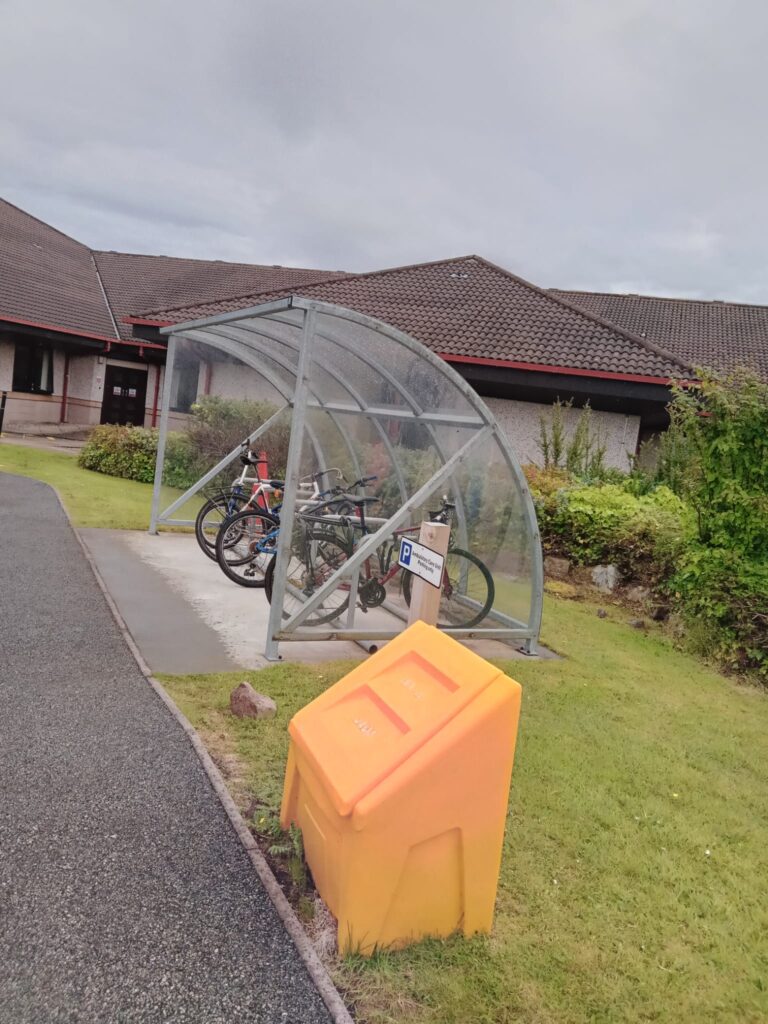Heading 2
NHS Western Isles is Committed to Help Tackle the Climate Emergency
Published on 22 February 2023
NHS Western Isles has formed a new Sustainability Group to lead on the Board’s sustainability and environmental commitments and provide a platform for the management and promotion of these areas.
NHS Scotland has released a new Climate Emergency and Sustainability Strategy (2022-2026), outlining aims and targets to deliver a net-zero carbon emissions service and provide sustainable healthcare: https://www.gov.scot/publications/nhs-scotland-climate-emergency-sustainability-strategy-2022-2026/ There are a number of targets to be met, including: becoming carbon net-zero by 2040, reducing waste, making theatres greener, creating a circular supply chain and using our status as an Anchor Organisation to bring better health and fairness to all communities.
The climate emergency has been described as the biggest global health threat of the 21st century, yet the NHS still accounts for around 4% of the UK’s total carbon emissions. Climate change, loss of biodiversity and pollution are linked with health and health inequalities and by tackling these issues we also improve population health and well-being. The aim of the new Sustainability Group is to tackle these issues.
Islands like the Western Isles are more vulnerable to the impacts of the climate emergency. Some problems we face include freshwater contamination with rising saltwater levels, flooding, coastal erosion, ecosystem damage and higher densities of disease carrying insects, for example, ticks. Increased storm intensity and frequency will create problems with travel infrastructure and may impact healthcare delivery through building damage, staff being unable to travel to work or to see patients, the ability to travel to the mainland, digital connectivity and food production or deliveries. All of these deepen existing inequalities in our most deprived areas.
The NHS Western Isles Sustainability Group is being championed by Board non-executive director Julia Higginbottom and chaired by the Director of Public Health, Dr Maggie Watts. A Climate Change Risk Assessment and Adaptation Plan has been completed. The group also works with other groups with the same goals, such as the Outer Hebrides Community Planning Partnership and its subgroup, the Climate Change Group.
Dr Maggie Watts said: “Living on an island presents challenges and opportunities when we seek to tackle climate change and sustainability. We are all affected by the changing weather and are particularly aware of the impacts of rain and wind on our extensive coastline, which also affects travel across the islands. We need to work together to maximise the potential of renewable energy to sustain island life and to reduce our use of fossil fuels. And we also need to learn from our forebears about sustainable living, reducing our use of goods and food miles, and promoting our local goods and produce for local consumption”.
Rural, island communities face unique challenges, but progress has been made in many areas. Some reductions in energy usage have already been achieved and NHS Western Isles are currently working with an engineering firm to explore Net Zero route maps for their three biggest energy consuming properties: Western Isles Hospital, Uist & Barra Hospital and the Health Board Offices. A number of waste reduction projects are also being progressed, including approving a new food waste strategy to reduce waste by 33%, that includes food waste being processed in the anaerobic digester in Creed Park for more sustainable disposal.
To help improve biodiversity, the “Our Hospital Garden Project” kindly led by the local Rotary Club, the rejuvenation of the Clisham Garden in the Western Isles Hospital and the planting of a number of perennials, shrubs, plants and flowers. As well as improving biodiversity, this also provides a tranquil green space for patients, staff and visitors.

Reducing the reliance on fossil fuel-based travel is a particular challenge in the Western Isles, but we continue to encourage meetings or training sessions to be held online where possible, both locally and nationally. There are many projects encouraging Active Travel and to support people to get active and improve their physical activity levels. NHS Western Isles is working towards an Employer Cycling Friendly award, which supports employers to increase staff cycle rates. As part of this, a staff travel survey has been circulated to allow staff to have their say in how sustainable travel to and from work can be achieved. This allows the specific challenges of each location to be reviewed separately, identifying the barriers and how best to engage people. A bid to install walk, wheel and cycle routes and recreational areas around the three main hospital areas is also being prepared. A new cycle shelter has already been installed in Western Isles Hospital.
To further reduce patient travel, some chemotherapy treatments are now delivered locally, which has reduced the need to travel as well as providing an overall improved patient experience. Funding has also been provided for more “Near Me” and digital hubs. These reduce the distances some people need to travel for appointments and allows some patients with limited skills or electronic equipment to access these services remotely.
The Sustainability Group is working to produce a local Strategy and Action Plan to continue to build on the work already being undertaken. The group hopes to engage staff by raising awareness of the strategy and the climate emergency issues and providing training, eventually leading to establishing a network of “Green Champions” to lead change from within their own areas. Any questions or comments should be directed to wi.sustainability@nhs.scot

- NEXT PAGE: Health Protection and Immunisation
- LAST REVIEWED ON: February 22, 2023